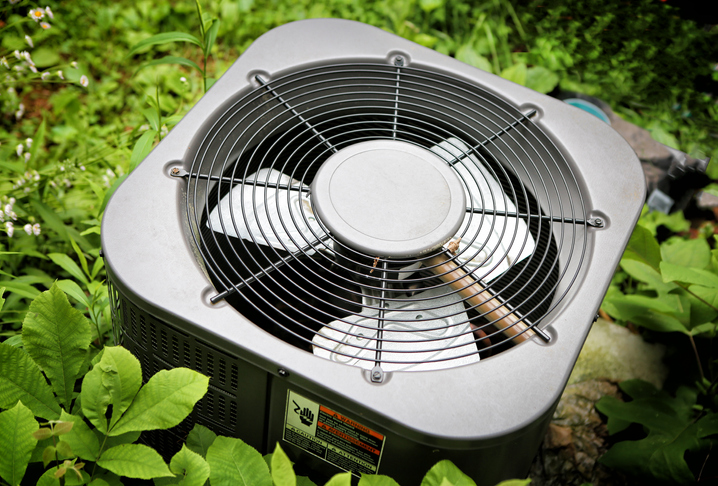Here on this blog, we have been giving you tips on how to make your home more energy efficient. Today, let’s put a microscope on how we can make our HVAC (heating, ventilation, and air conditioning) systems more energy efficient—with some small and perhaps a few big changes.
Before we talk energy, I always like to dive into the numbers for any of those analytical (left brain) by-the-number readers. In the Annual Energy Outlook 2022, the U.S. EIA (Energy Information Admin.) notes that in 2021, electricity use for cooling the interior of buildings (space cooling) by the U.S. residential and commercial sectors was about 389 billion kWh (kilowatthours), which was equal to about 10% of total U.S. electricity consumption for the entire calendar year of 2021. Narrowing in specifically on the residential sector’s electricity use for cooling was calculated at about 23566 billion kWh for last year, which was equal to about 16% of the total residential sectors’ electricity consumption and about 6% of the total U.S. electricity consumption.
As we also know, in 2021, Americans paid 25.1% and 6.5% more for gas utilities and electricity, according to data published from the U.S. BLS (Bureau of Labor Statistics). The solution, then, for saving money, saving energy, and improving the environment lies in making our homes more energy efficient.
Looking at HVAC systems, specifically, it was time to compile several suggestions from HVAC professionals to make our homes more energy efficient, ultimately saving us money and hopefully some energy along the way.
- Maintaining our HVAC: a regular maintenance investment will go a long way, which in fact, will ensure our systems are running efficiently. Failing to carry out small repairs on heating and cooling can end up costing a hefty chunk of change in the long run. First and foremost, annual system checkups are advised followed by a six-month service call. This will align with the seasonal check of our standard AC and in the winter for our furnaces. Keep in mind, we want a professional, although we like to think we all are when it comes to making sure the flue it clear, it’s in our best interests to have an expert test the gas pressure and to check for any loose connections. Also, measuring refrigerant levels is a must for maximum performance. And we certainly don’t want dirty coils to hinder the cooling process when we want it or need it.
- Insulating more than our pockets. Depending on whether we live in a new or old house this may vary, but the results are the same. There are many different types of energy-efficient products available on the market from insulation to vapor control membranes to prevent energy loss in our attics, around windows, and our doors. With simple changes we can make a significant difference in reducing energy waste and reduce our energy bills. Depending on how bad the energy loss is in our homes we should be able to experience some energy efficiency and hopefully comfort in our wallets with our energy bills. Reducing those leaks of air will keep heat and air in and that means more money in your pocket in the hottest and coolest times of the year.
- Clean filters can go a long way. Dirty filters can restrict airflow and cause a system to work harder than it should, which can lead to higher energy bills. With more people working from home than ever before, this becomes essential. It is also recommended that we use HEPA (high efficiency particulate air) filters, which is a designation and certification for meeting and exceeding certain criteria from trapping more than 99% of particles that are considered 0.3 microns.
- Climate zones as an option. Home controls can monitor heating and cooling systems, enabling homeowners to turn up or down heating room by room, rather than setting one temperature for the entire house. Climate zones can save both energy and money. Again, if your house is not set on a zone system, this might be a little tricky. Professionals will need to install dampers inside ducts, among other HVAC upgrades. So, sealing those air leaks is a great alternative until you can afford to invest in an energy-efficient system.
- Out with the old and in with the new HVAC equipment. If your systems are old, consider an energy-efficient system. New HVAC systems are designed and developed to be more energy efficient than older models. In fact, some newer HVAC systems can be up to 60% more efficient than older models. Couple all these things we have talked about and over time we should be seeing a significant reduction in energy bills with a more efficient HVAC system.
All in all, we know heating and cooling are some of the largest energy expenses in a home. Small—or big—changes can go a long way in maintaining comfort in the home, while reducing costs for the long term. What are you doing your home?
Want to tweet about this article? Use hashtags #IoT #sustainability #AI #5G #cloud #edge #futureofwork #digitaltransformation #green #ecosystem #environmental #circularworld


